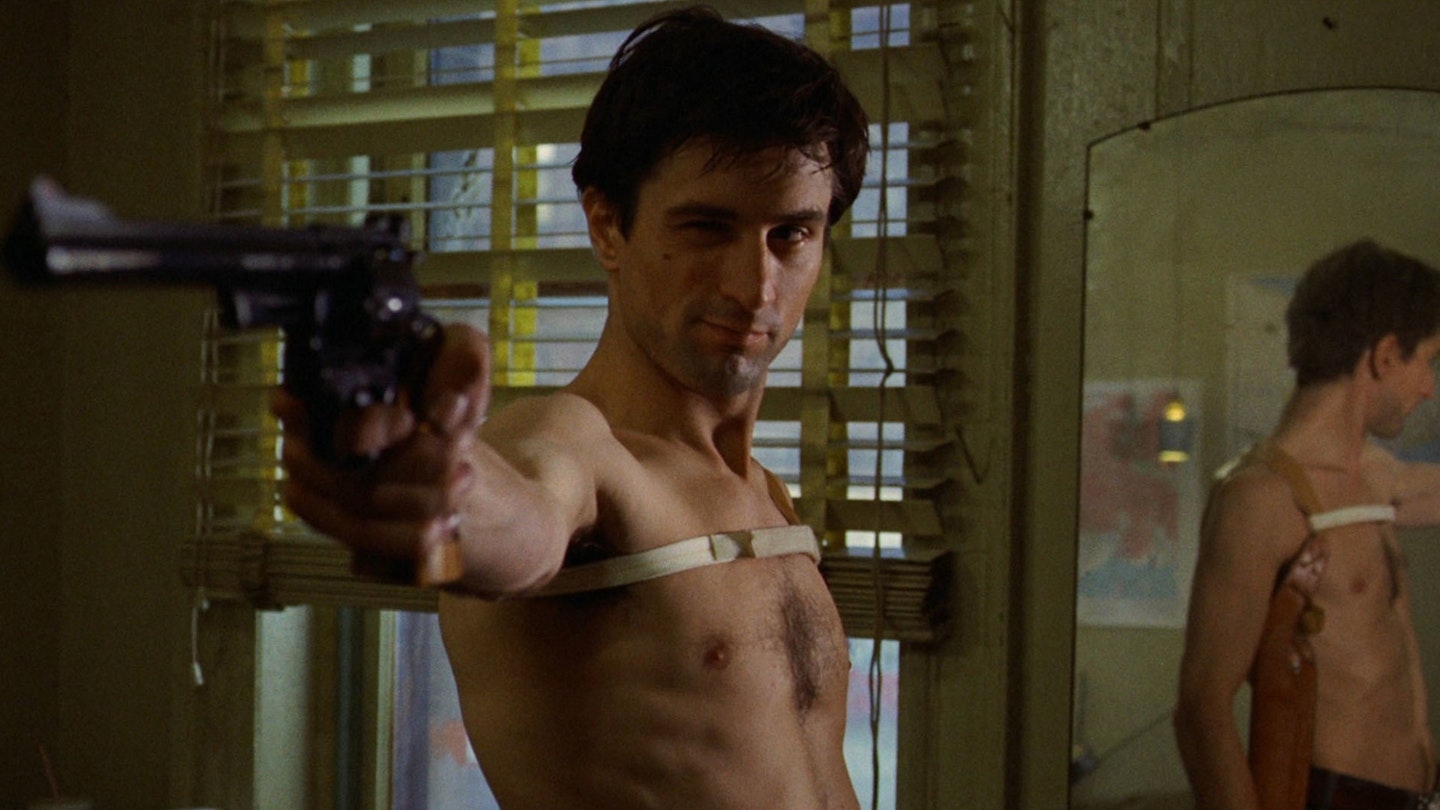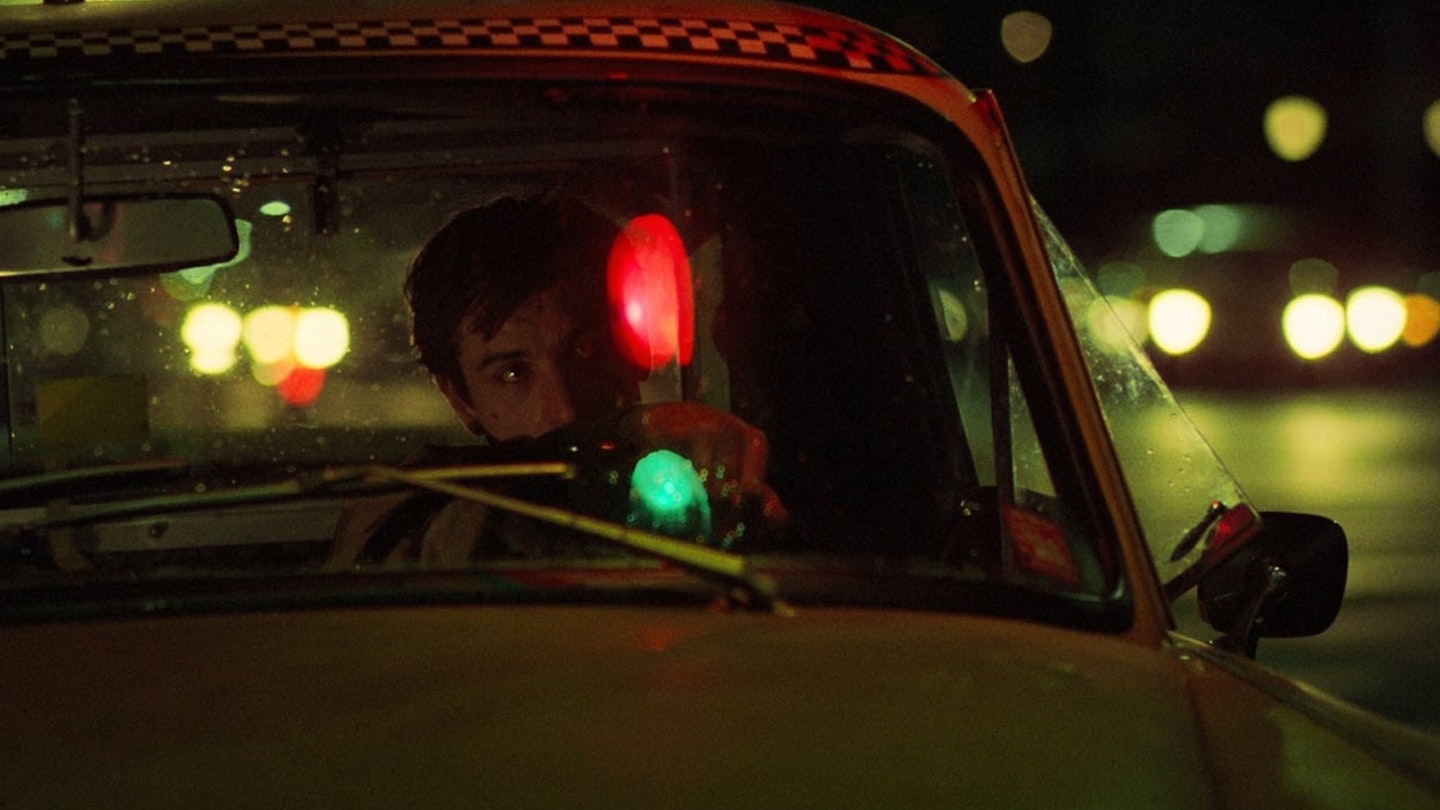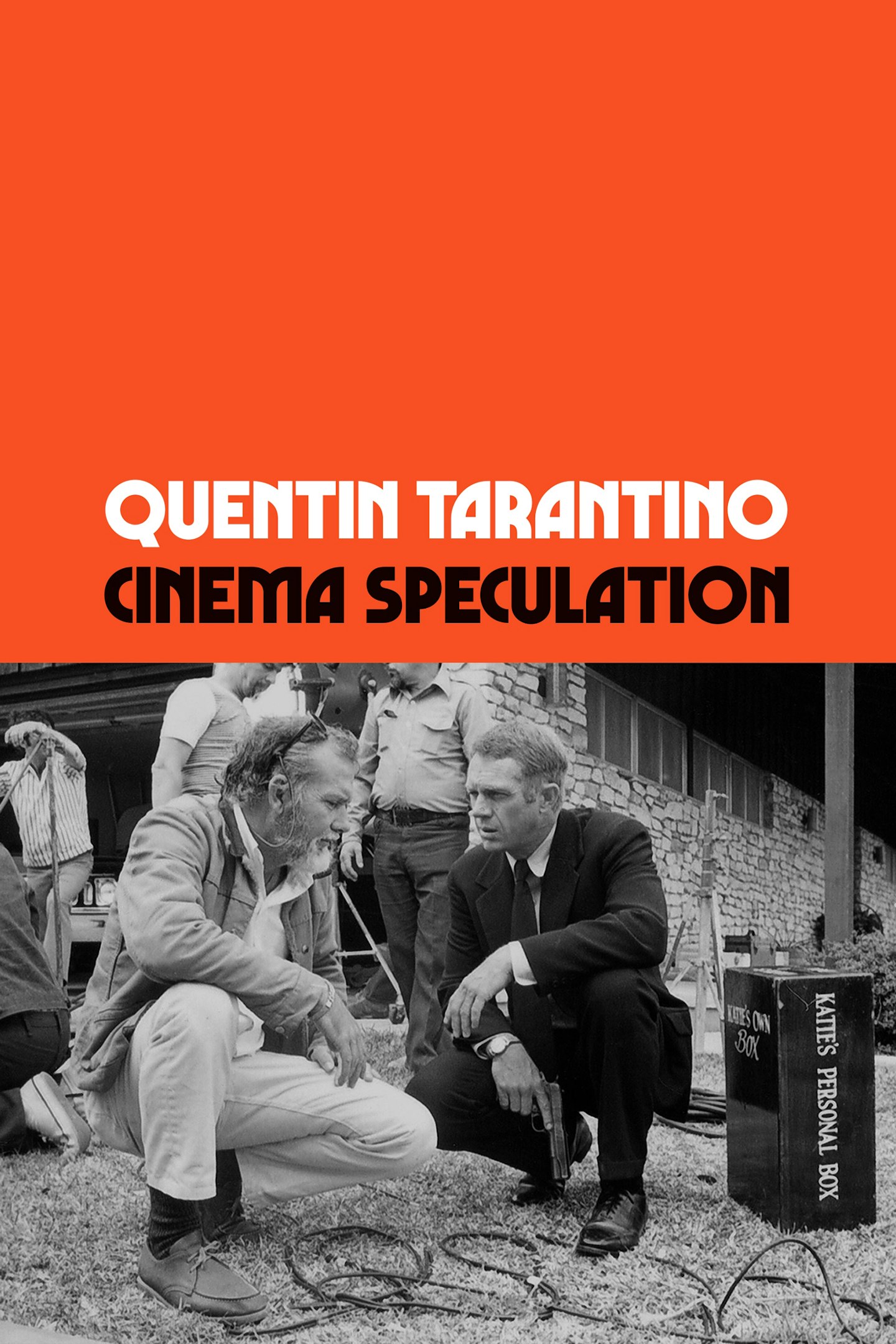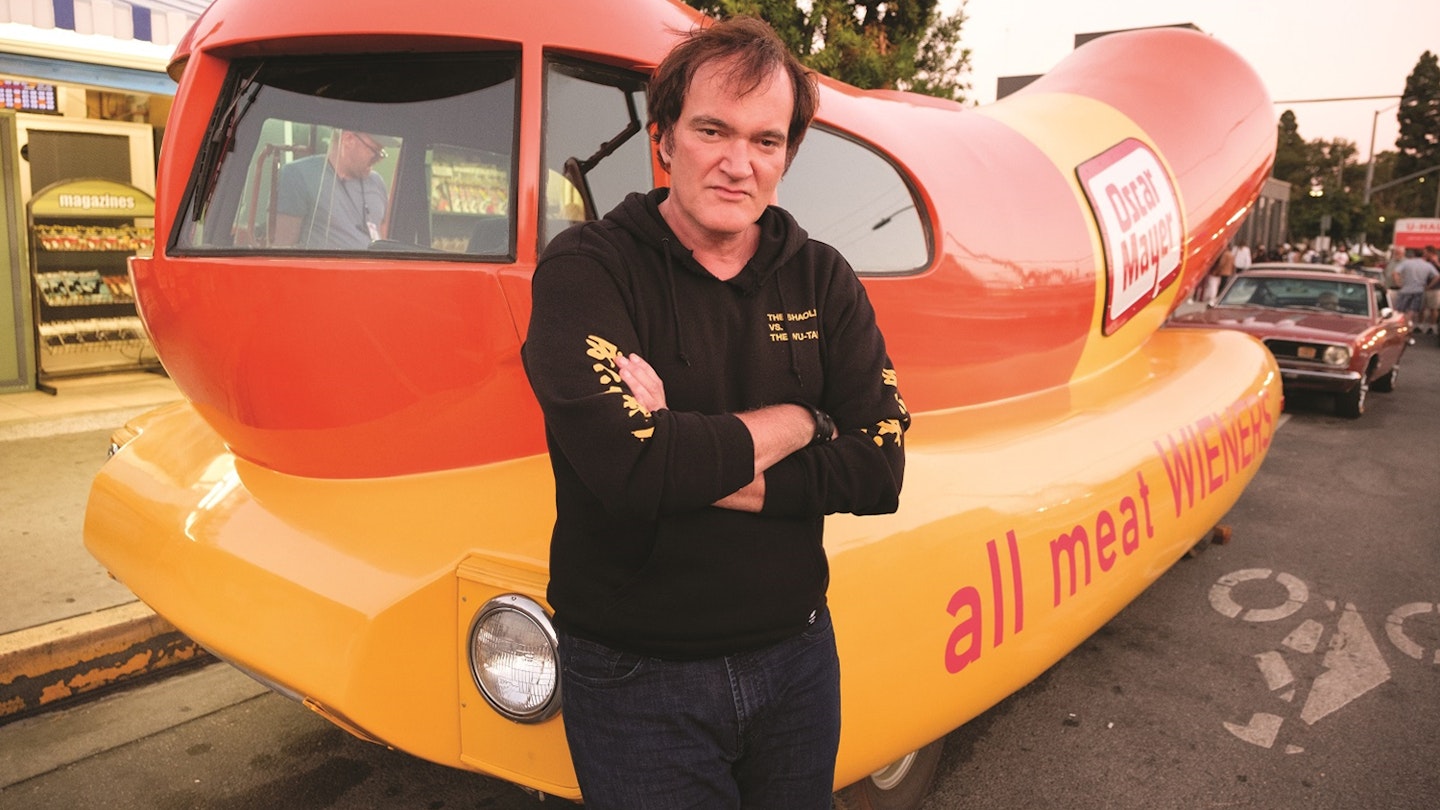If you’re looking for someone to guide you through a history of Hollywood and a whole host of cinematic memories, who better than Quentin Tarantino? The legendary director turned author last year for his expanded novelisation of Once Upon A Time In Hollywood, and for his second book he’s gone for something different. Cinema Speculation is a non-fiction work, a jaunt through decades of movies from Tarantino’s own perspective, reeling through the art form that captured his imagination as a kid and propelled him on his own journey as a filmmaker.
Inside its pages, Tarantino tackles the classics of ‘70s cinema. Here, you’ll find an exclusive extract from Cinema Speculation all about his experience watching Martin Scorsese’s Taxi Driver for the first time – unpicking what it is that makes Travis Bickle so electrifying, how the movie plays with the audience, and why the performances make it feel so believable. Written in Tarantino’s own unmistakable voice, it’s a chance to read a legendary filmmaker on a truly legendary film. Take a read below, and find Cinema Speculation now at all good booksellers.
——

In the first half of Taxi Driver, it was just the story of a goofy guy going crazy, depicted against a very authentic street/nightlife milieu. When Taxi Driver stopped being a comedy about a goofy guy was when child prostitute Iris Steensma hopped into the back seat of Travis’ cab.
Travis, who says nothing, watches in his rearview mirror as Sport yanks her out of the cab (“Bitch, be cool!”), and tosses that crumbled up twenty-dollar bill onto the front seat (“Cabbie, just forget about this, it’s nothing”).
That crumpled up twenty-dollar bill was such a strong visual image that it sobered up an audience that had grown accustomed to snickering.
From that point on, not only did the audience start taking the film seriously, it also started taking Travis seriously. Which also coincides with Travis taking his weight-lifting and gun-handling and preparation for God knows what seriously.
That goddamn crumpled up twenty-dollar bill.
From the moment we saw the effect it had on Travis, and we knew what it represented (the money that keeps the girl on the streets, the cheap payoffs that keep her in her place, the one lone fleeting opportunity that Travis could have saved her), we knew—eventually—he would save her. Then, a movie that defined itself by its random incidents suddenly snapped into focus. Suddenly all the random incidents didn’t seem so random. The filmmakers wanted us to know who this guy was before they sent him off on his moral imperative quest for nobility.
Then the movie started playing like a real movie. But frankly, a more real movie than we were used to.
Characters weren’t the normal movie good guys-bad guys.
Travis was a fucking loon.
But in this instance, he might be the man for the job.
When De Niro has his first scene with Keitel’s Sport, it doesn’t go quite like we might have thought. For one, as Pauline Kael pointed out, Keitel’s pimp is surprisingly personable. When he makes jokes at Travis’ expense, we get the jokes, even if Travis doesn’t, and we laugh (my audience loved Keitel’s Sport, and they also loved Steven Prince’s gun salesman, “The Magnum? They use that in Africa for killing elephants!”).
A small thing that makes a big difference is Sport wants Travis to be a satisfied customer (“Go ahead, man, have a good time”). Sport isn’t a monster in a monster movie like the gargoyles in They Call Her One-Eye. He’s a businessman.

Even Jodie Foster’s Iris isn’t the normal exploitation character. For one, she seems much younger during her lunch with Travis than she does in her streetwalker getup. She talks like a real person (Niki, the corresponding character in Schrader’s Hardcore, is entertaining and we like her, but she always sounds like a character in a movie). Despite the life she’s living, Foster’s Iris comes across as naive to the cost. Iris isn’t hopeless, there is still something to be saved.
An interesting change on Schrader’s part when it comes to syncing up Taxi Driver with The Searchers is what sets Travis off on his moral quest to save Iris, as opposed to Ethan’s quest to save Debbie.
Debbie never asks for Ethan or Martin (Jeffrey Hunter) to go on this long journey on her behalf. But—for one fleeting moment of clarity—Iris does. Was it lucky of all the cabs in New York she hopped into Travis’? Once when Dan Rather was conducting an interview with me, I mentioned early in my career I got lucky. He scoffed at my use of the word “luck”. Declaring, “Some say, what you call ‘luck,’ is when opportunity meets preparation.”
Well, I buy that definition (though I also do believe in Sidney Poitier’s definition of serendipity, “when Providence comes down and kisses you on both cheeks”). Travis had been preparing for some apocalyptic showdown. Some cataclysmic event. A moment of reckoning, or as Big John Milius would call it, Big Wednesday—a moment where
Travis can distinguish himself.
And when Iris jumps in his cab, hoping to escape, Travis’ preparation finds opportunity. He’s haunted by that encounter, but so was the audience. Even more than Travis, we in the audience know that was a fleeting moment. We know that when he eventually approaches her, she’ll laugh it off (like she does). She probably won’t even remember it (she doesn’t). She’ll insist she’s fine and there’s nothing to worry about.
But… that one moment when she jumped into the back seat of his cab, she was clearly and unmistakably asking someone to save her from these people. And then it was only a matter of time before Travis would take all his guns and save “Sweet Iris.”
And that’s when Taxi Driver started operating like Death Wish, like Trackdown (which I had already seen), like The Farmer.

CINEMA SPECULATION by Quentin Tarantino is published by W&N and available in Hardback, eBook and audio – out now.
